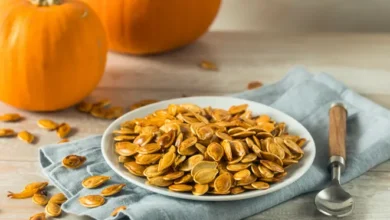Science Explains What Happens To Your Body When You Don’t Poop Every Day!
Mostly, headaches are connected with stress. Well, because regular pooping is a basic function of our metabolism and body, the disrupted function subconsciously stresses out the whole body, making it more stressed, worried and cramping. Your whole body feels tensed, as well as your head.
Also, if you are among the people who have hard stool, this could be as well a result of dehydration. Another cause that could lead to headaches is the increased level of toxins that didn’t got out, because you’re constipated. Even if you feel full, just drink more water to prevent your headaches.
Fecal incontinence
This term actually means that you’re no longer in control of your bowel movements and it’s the most common effect of being constipated. What actually happens is a physical blockage that makes the colon muscles to stretch.
This condition can be threated with taking some laxatives, or you can also try doing some exercises that could strengthen your pelvic muscles, as well as your weakened bowel muscle contractions.
Impaction
When you fail to “pop a squat”, the stool sticks somewhere I the intestines, resulting to a physical blockage. The regular contractions sent by the brain to the large intestines to squeeze with some amount of force to get the stool out doesn’t actually work, because the stool is hardened and stuck. Normally, this is a painful process and some people even pay a visit to the hospital, for treatment, such as enema.
an*l fissures
This medical term actually refers to the teared up an*l tissue that is being forced to push out the stool. It can lead to bleeding, itching and can even worsen the whole constipation. The fissures are regularly very tiny, but can expand, due to the fact they are positioned on the an*s, which is a stretchy muscle.
This condition is more common among the children, who, afraid of the pain, push and hold the stool not to be released. If the condition worsens and the fissures get quite bigger, it might even require surgery to heal.
Rectal prolapse
The re*tum is the ending of the an*s. It is the inside part that due to force stretching can partly come out, or even sometimes, the whole re*tum can come out. Normally, as the other symptoms, it is painful and results in bleeding, which is another problems – you can’t sometimes differ it from hemorrhoids.
Bladder control
The organism is a one whole, so when one organ or process is disrupted, it affects the surrounding organs. Such as the bladder in this case, which is very near to the colon. When the colon is full it puts extra pressure on the bladder and you could feel more frequent need to urinate than usually.
Hemorrhoids
The most connected word with rectal problems and constipation is definitely hemorrhoids. What happens is the following: the veins that line the re*tum are more pressured than usual during constipation, thus they stretch beyond their capacity and change their usual shape. Sometimes they can even pop out from the an*s.
Hemorrhoids can be internal and external and when you squeeze further more, they can pop and cause bleeding and pain. The worse that could happen is a big hard bump, which can even lead to surgery.
Bad breath
A study made in Denmark concluded that constipation can lead to occurrence of bad breath. The connection between the two is not very clear, but the theory is that during constipation, you retain toxins, which can occur in your breath, making it smelly, such as the smell from gas.




